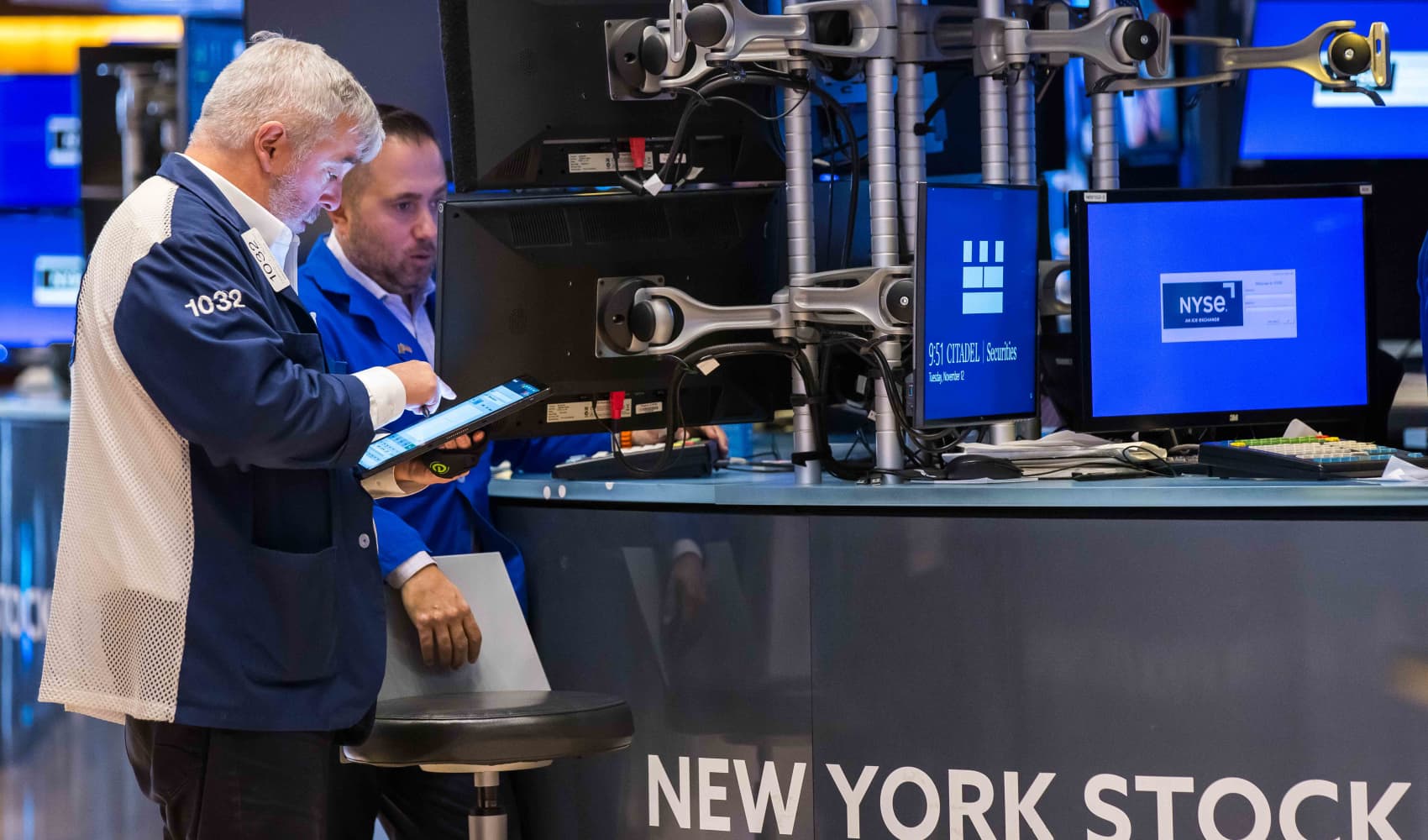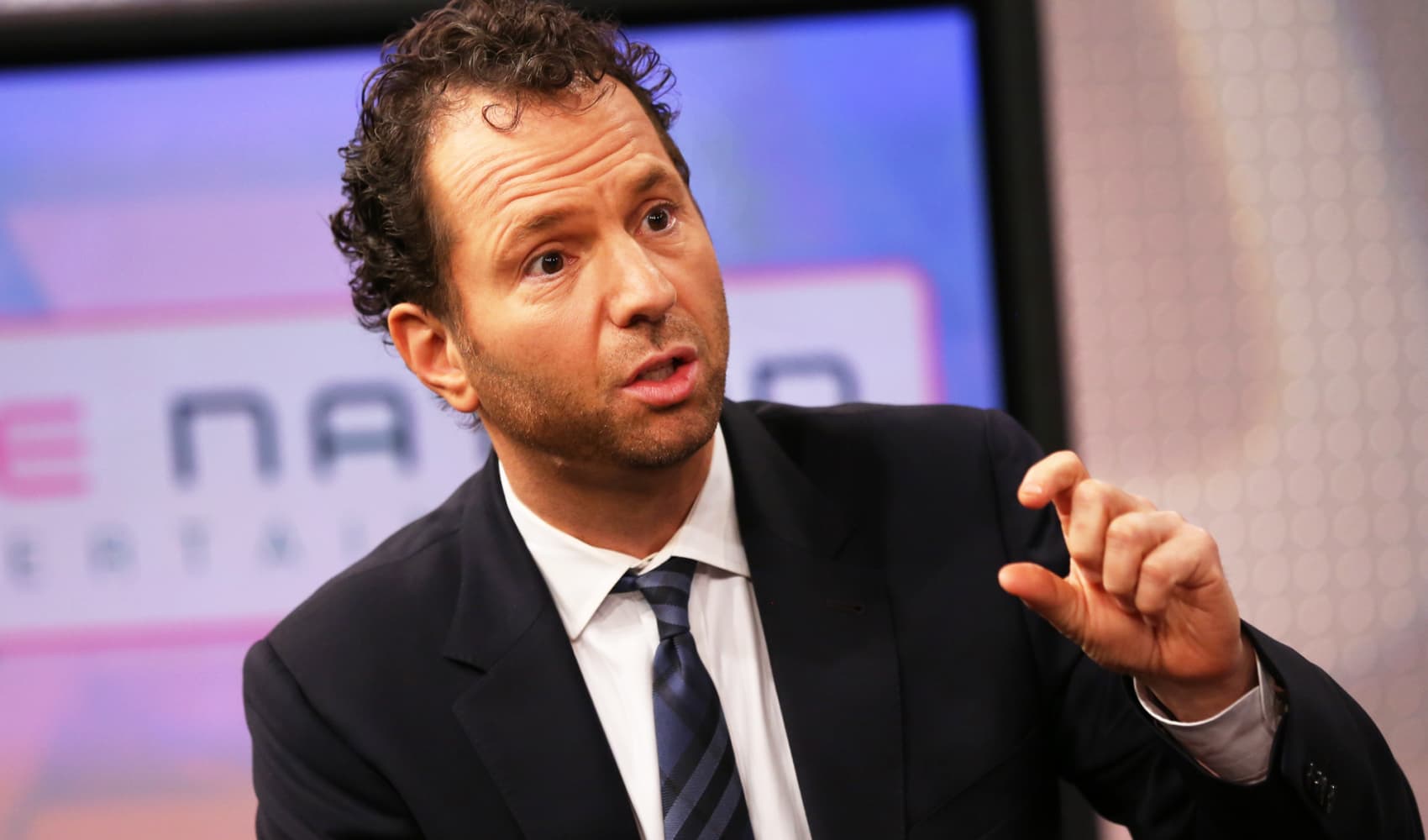
- Former President Donald Trump leads Vice President Kamala Harris 48% to 46% overall in the CNBC All-America Economic Survey.
- But on the economy, Trump leads Harris by 2-to-1.
- Democrats are now much more satisfied with their nominee and Harris saw big gains among young voters.
- The poll of 1,001 Americans across the country was conducted July 31 through Aug. 4. The poll has a margin of error of +/-3.1%.
The CNBC All-America Economic Survey finds former President Donald Trump holding a commanding lead among voters on key economic issues, but ahead of Vice President Kamala Harris by just a 2-point advantage in the head-to-head race for the White House.
After the replacement of President Joe Biden with Harris, an assassination attempt on Trump and the Republican convention, Trump's 48%-46% lead is within the CNBC survey's margin of error and unchanged from the 45%-43% lead Trump held against Biden in the NBC News July Survey. While the head-to-head competition remains the same, there have been dramatic but offsetting changes beneath the surface for both sides that have kept the race even.
Get top local stories in Southern California delivered to you every morning. Sign up for NBC LA's News Headlines newsletter.
The most dramatic shift: 81% of Democrats are satisfied with Harris as their nominee, compared with just 33% who were satisfied with Biden. But that was partially offset by a 9-point gain among Republicans who are satisfied with Trump as the nominee, bringing his number to 80%.
Interest in the election rose 3 points for Democrats, but it rose 2 points for Republicans. Young voters showed far greater supporter for Harris than they did for Biden, backing the vice president now by 10 points, compared with backing Trump by 2 points in the NBC July poll. That was offset by a big swing of 12 points among voters aged 35-49 toward Trump. The age group now supports Trump by 9 points. Harris' net approval rating (approval minus disapproval) improved from -15 in the July NBC survey to -8, but Trump's improved about the same amount to -9.
No longer just about Trump
Money Report
"It is less now a referendum on Trump than it is a head-to-head competition between the two candidates," said Micah Roberts, a partner at Public Opinion Strategies who served as the Republican pollster on the survey.
Jay Campbell, a partner at Hart Research, led the survey and served as the Democratic pollster.
The bottom line is the race remains tight and both candidates have consolidated the support among their respective party members but neither has made meaningful inroads among the swing groups that ultimately will win them the presidency.
Roberts added, Harris has a lot of work to do in a short period of time.
"She's still carrying a lot of water for the administration," Roberts said. "She has to answer for that and define herself independently. ...That's a lot of baggage to carry when you've got a compressed time frame against a mature campaign on Trump's side."
The poll of 1,001 Americans across the country was conducted July 31 through Aug. 4, before Harris tapped Minnesota Gov. Tim Walz as her vice presidential candidate, but after Trump named Ohio Sen. JD Vance. The poll has a margin of error of +/-3.1%.
Trump's big lead on economy
On the economy, by 2-to-1, Americans think they will be better off financially under Trump. That's largely driven by the 79% of Republicans who believe their economic fortunes will improve if Trump takes the White House. Just 48% of Democrats believe they will be better off if Harris wins, compared with 42% who say it makes no difference. As for independents, 31% think they will be better financially if Trump wins, 10% if Harris wins and 54% don't think it matters.
The results offer an opportunity for both sides to convince independents they have better economic policies. Independents break for Harris 40-36 in the presidential ballot race, with 20% undecided. Her lead among independents is 4 points lower than Biden's in the July NBC survey.
The survey also shows an opening for Harris to introduce her policies to the electorate. Nearly 80% say they know some or a lot about what Trump would do on the economy compared with just 58% for Harris.
Americans continue to single out inflation and the cost of living as the top issue of concern in the presidential race. Trump leads in the ballot race by 12 points among those who prioritize the issue. He has a similar 12-point lead on the second-most important issue, the country's economy overall. Harris has a 22-point advantage among voters concerned about abortion, a 12-point lead on health care and 6 points on protecting democracy. The two are tied on who would best address the needs of the middle class.
One key reason why the two are so close: Harris leads Trump 39%-38% when voters are asked who is "better to bring positive change to the country" — a virtual tie.
Views on the current state of the economy remain downbeat with only 21% rating it excellent or good, down 4 points from the CNBC March survey, and 78% saying it's just fair or poor, up 3 points.
But for the first time in Biden's presidency, Americans are net optimistic about the economic outlook with the percentage of respondents who think the economy will get better greater than the percentage who believe it will get worse. The increase was driven by a nearly 20-point surge in optimism among Republicans compared with CNBC's March survey. Republicans appear to see a brighter economic future ahead with Trump winning the White House.
The overwhelming majority of Trump supporters rate the current state of the economy as fair or poor as do a majority of those who say they will vote for Harris.
The full survey results are available here.
Correction: Micah Roberts was the source of the following quote. A previous version of this story misstated the attribution: "She's still carrying a lot of water for the administration. She has to answer for that and define herself independently. ...That's a lot of baggage to carry when you've got a compressed time frame against a mature campaign on Trump's side."
Fifty-eight percent of the people surveyed said they know some or a lot about what Harris would do on the economy. This figure was previously misstated.






